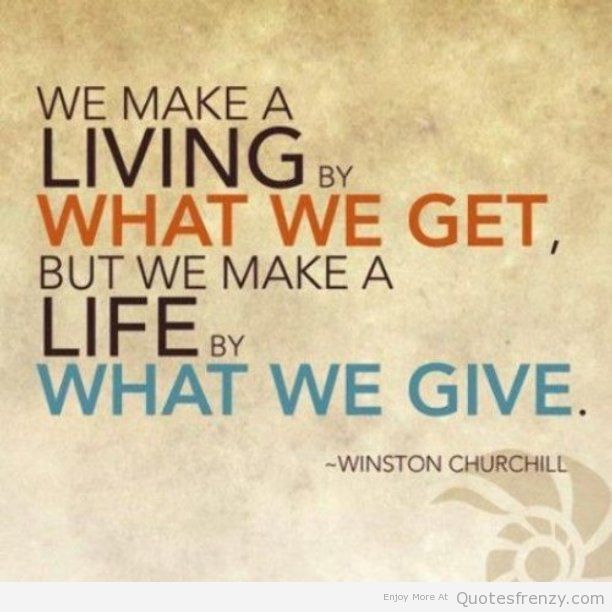In the intricate tapestry of human interaction, the threads of generosity and altruism weave a vibrant fabric, rich in meaning and purpose. Bahá’í teachings inspire a profound understanding of giving—transcending mere charity. This philosophy propounds a vision of communities thriving through equitable contributions, where each individual plays a pivotal role in fostering a harmonious global environment. In this discourse, we shall explore the multifaceted nature of giving within the Bahá’í paradigm, elucidating its intimate connection to social justice, personal growth, and the collective well-being of humanity.
To commence, one must conceive of the essence of giving as akin to an ecosystem, flourishing through reciprocal relationships. Each individual, like a unique species within this ecosystem, bears a responsibility to nurture the community that sustains them. In a world where disparity prevails, the Bahá’í teachings urge humanity to transcend the confines of traditional charity, advocating for a model where giving is not an act of mere benevolence but a shared obligation. This notion posits that true fulfillment arises from contributing one’s fair share, ensuring that the inherent dignity of each individual is recognized and upheld.
The Bahá’í perspective posits that true giving is a manifestation of love—a potent force that underpins societal transformation. It elevates the act of helping others beyond altruistic gestures and positions it as a fundamental principle of existence. This is where the metaphor of the sun becomes particularly poignant. Just as the sun shines its light and warmth indiscriminately, nurturing life across the globe, individuals are called upon to reflect this divine benevolence through their acts of service. The impact of such generosity creates a ripple effect, fostering an environment where both the giver and the receiver thrive.
Engaging in a deeper exploration of this ethos, the Bahá’í teachings emphasize the importance of developing a spirit of collective ownership. True giving encompasses more than financial contributions or physical offerings; rather, it involves investing one’s time, skills, and passions into the communal fabric. When individuals come together to share their talents and resources, they engender a culture of cooperation which is the cornerstone of societal advancement. Herein, the notion of stewardship emerges, as it challenges individuals to view their contributions as integral to the communal legacy, warranting earnest consideration of how one’s actions affect the broader social landscape.
Furthermore, this concept of giving back our fair share encompasses addressing systemic injustices that inhibit human potential. The Bahá’í teachings illuminate the need for proactive engagement with the social, economic, and political challenges that pervade societies today. Rather than succumb to a passive attitude towards inequality, followers are encouraged to embody a commitment to transformative justice. Each person’s unique experiences and insights serve as invaluable assets in this noble pursuit, enabling communities to cultivate solutions that are informed by diverse perspectives.
A vital aspect of this model of giving is the understanding that it is inherently interconnected with personal growth. Engaging in acts of service and advocacy not only aids others but also catalyzes one’s own spiritual and intellectual development. Within the Bahá’í framework, the act of giving fosters humility and compassion, compelling individuals to recognize their shared humanity. As one actively participates in uplifting others, a profound exploration of self ensues—recognizing both strengths and vulnerabilities. This introspective journey is vital for the flourishing of one’s character and inextricably linked to the collective well-being of society.
Moreover, the Bahá’í faith advocates for a vision where the vitality of communities is nurtured by the active contributions of all members, eradicating the notion of dependency often associated with charitable acts. Instead of fostering transactional relationships, the focus shifts towards building resilient networks that empower individuals. Such a paradigm engenders a sense of agency and responsibility, allowing each person to matter in the grand scheme of progress. Ultimately, it is this empowerment that cultivates a culture of gratitude, where the act of giving seamlessly intertwines with receiving, creating a harmonic balance essential for a thriving world.
To encapsulate the Bahá’í teachings surrounding giving, it is essential to embrace a holistic approach that fosters unity and promotes equity. The metaphor of a river serves as an emblematic representation of this philosophy; a river nourishes all it encounters along its course. Each tributary represents the myriad contributions of individuals, coalescing to form a larger body of water that sustains life at every juncture. As such, the collective endeavor of giving back our fair share becomes not just an aspirational goal but a sacred duty that binds humanity together, forging communal bonds that stand resilient against the trials of modernity.
In summary, the Bahá’í teachings illuminate a pathway that transcends the limitations of charity, urging individuals to embrace a deeper understanding of responsibility towards one another. Through the integration of love, stewardship, and empowerment, one can cultivate a spirit of giving that fuels both personal and communal growth. This vision, rooted in the belief of interconnectedness, advocates for a thriving world wherein every individual contributes their fair share. Such a commitment not only enhances the richness of human existence but also ensures that the legacy of generosity reverberates through generations to come.
